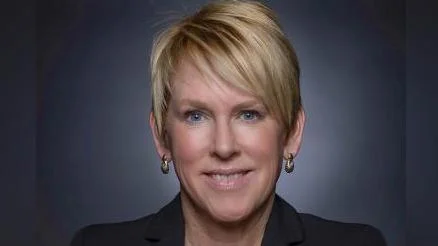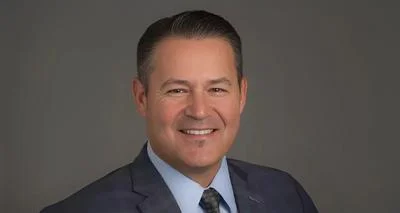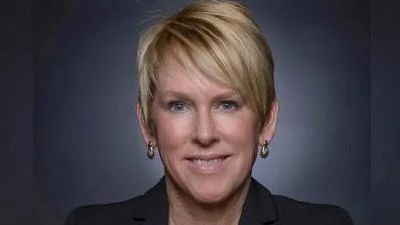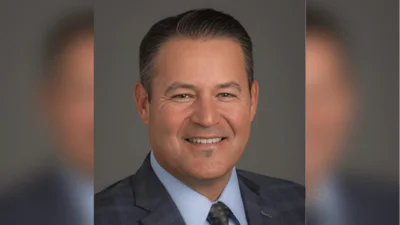Katherine P. Frank, Chancellor at University of Wisconsin-Stout | Official website
Katherine P. Frank, Chancellor at University of Wisconsin-Stout | Official website
The University of Wisconsin-Stout’s Bachelor of Science in cybersecurity has been ranked among the Top 25 Best Value Cybersecurity Degree Bachelor’s Programs in the United States by Programs.com. UW-Stout is the only institution from Wisconsin to appear on the list, earning a No. 22 ranking.
According to Programs.com, the ranking recognizes programs that provide strong educational quality and return on investment for students. The listing highlights UW-Stout’s commitment to making cybersecurity education accessible, affordable, and career-focused.
UW-Stout’s program holds designations as a Cisco Certified Networking Academy, AWS Certified Academy, and Microsoft Certified IT Academy. Students receive hands-on experience in real-world labs taught by faculty with advanced industry credentials.
“Being recognized among the nation’s top cybersecurity programs is an honor that reflects the dedication of our students and faculty. This recognition reinforces our commitment to applied, hands-on education that makes a real difference for our students,” said Holly Yuan, program director of B.S. cybersecurity and B.S. computer networking and infrastructure engineering and founding director of UW-Stout’s Cybersecurity Research and Outreach Center.
Yuan also addressed how new technology trends are shaping both challenges and opportunities for students: “Generative AI is reshaping cybersecurity – both as a threat and as a defense. At UW-Stout, our Cyber@Stout Student Club is collaborating with faculty to build our first AI-powered cyber range and Capture the Flag (CTF) challenges focused on the security of large language models. These innovations ensure our students stay ahead of emerging trends and graduate prepared to meet the evolving needs of Wisconsin’s workforce and beyond.”
The Cyber@Stout team achieved first place at this year’s Wisconsin Collegiate Cyber Defense Competition and finished second overall across Wisconsin, Illinois, and Missouri in January 2025. Their current focus includes red-team strategies involving cloud environments and generative AI models.
Yuan added that a recent partnership with Palo Alto Networks Academy provides additional resources: “We are now a member of the Palo Alto Networks Academy, thanks to the support of one of our advisory board members, who is a vice president at Palo Alto and helped us build this connection. This partnership further strengthens our students’ access to world-class cybersecurity training resources.”
UW-Stout graduates more technology and engineering students than any other school north of Madison. The university integrates artificial intelligence training into all degree programs as part of efforts to prepare graduates for workforce needs across sectors such as manufacturing, communication, marketing, construction, supply chain management, design, counseling, and more.
All programs listed in Programs.com’s Top 25 are designated National Centers of Academic Excellence by either the National Security Agency or Department of Homeland Security. UW-Stout holds designation as a National Center of Academic Excellence in Cybersecurity for Cyber Defense through 2028—a distinction earned by about 4% of U.S. schools—and was the first four-year university in Wisconsin to receive it in 2017.
“The CAE-CD designation is a testament to the hard work and dedication of our faculty and students. It highlights our commitment to excellence in cyber defense education and positions UW-Stout as a leader in cybersecurity education. We’re all very proud of this achievement,” Yuan said.
Yuan received national recognition last fall with the Visionary Academic Leadership Award at the Cyber Security Summit for her contributions to integrating topics such as generative AI into courses like Application of Generative AI in Cybersecurity.
“AI can be leveraged to enhance cybersecurity controls and processes, helping our students stay ahead of emerging trends. In the field of cybersecurity, generative AI is quickly becoming a tool for both defensive and offensive measures. We’re focused on integrating these aspects into our curriculum to ensure our students are well-equipped to address challenges,” Yuan said.
Owen Pryga, senior student president at Collegiate Cyber Defense League at UW-Stout noted: “Holly regularly keeps up with people in the industry to ensure that the program is up-to-date, and employers are happy with Stout graduates. She supports the students in a variety of ways... giving students hands-on work experience before they graduate.”
To address workforce needs related to cybersecurity standards required by federal agencies like the Department of Defense, UW-Stout created ACCESS—an AI-Powered Cloud Cybersecurity Maturity Model Certification system—with help from a $124,555 federal grant from the U.S. Department of Defense Cyber Service Academy. The initiative aims to improve readiness among majors studying cybersecurity or computer networking infrastructure engineering as well as professionals seeking certification.
In spring 2023,UW-Stout received nearly $299K from Wisconsin's Department of Workforce Development via Fast Forward grants supporting paid internships for students enrolled in related fields so they can apply skills learned through coursework directly within businesses seeking stronger data security practices.The Universities of Wisconsin were also involved in administering these funds alongside DWD.
Over thirty companies have partnered with Career Services at UW-Stout under this internship initiative designed specifically around developing secure services or products through student-led projects.
Members from an active campus-based AI Student Club won first place outpacing teams from eleven Midwest universities during DigiKey DKC3 Coding Competition held last fall.DigiKey DKC3 Coding Competition information. Club advisor Assistant Professor Yuan Xing highlighted their role: “The club plays an important role in embedding AI in every curriculum by exploring... because club members come from different majors.”





 Alerts Sign-up
Alerts Sign-up